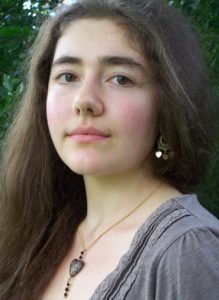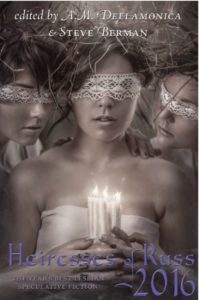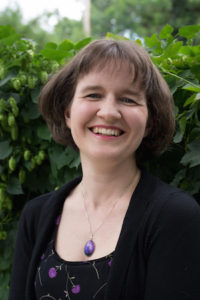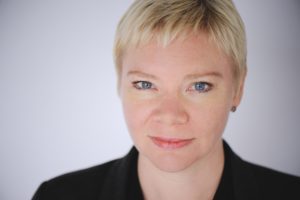 Kate Heartfield’s first novel, a historical fantasy called Armed in Her Fashion, is coming from ChiZine Publications on May 17, 2018. It’s available for pre-order now. This spring, look for her interactive fiction project, The Road to Canterbury, from Choice of Games. She will have two time-travel novels coming soon from Tor.com Publications, beginning with Alice Payne Arrives in November, 2018. Her short fiction has appeared in places such as Lackington’s, Escape Pod and Strange Horizons. A former newspaper journalist, Kate lives in Ottawa, Canada. Her website is heartfieldfiction.com and she is on Twitter as @kateheartfield.
Kate Heartfield’s first novel, a historical fantasy called Armed in Her Fashion, is coming from ChiZine Publications on May 17, 2018. It’s available for pre-order now. This spring, look for her interactive fiction project, The Road to Canterbury, from Choice of Games. She will have two time-travel novels coming soon from Tor.com Publications, beginning with Alice Payne Arrives in November, 2018. Her short fiction has appeared in places such as Lackington’s, Escape Pod and Strange Horizons. A former newspaper journalist, Kate lives in Ottawa, Canada. Her website is heartfieldfiction.com and she is on Twitter as @kateheartfield.
Is there a literary heroine on whom you imprinted as a child? A first love, a person you wanted to become as an adult, a heroic girl or woman you pretended to be on the playground at recess? Who was she?
I had many! Aerin from The Hero and Crown, Trixie Belden, Cherry Ames, Meg Murry from A Wrinkle in Time, Anne of Green Gables, and more. But there’s one who doesn’t get mentioned often, who was very important to me: Abigail Kirk, from the novel Playing Beatie Bow by Ruth Park.
Playing Beatie Bow is a time-travel fantasy set in Australia. The prose and world-building are impeccable, the atmosphere still makes the hair on my arms stand up, and I re-read the book every year or two, still. I’m on my second paperback; I loved the first one to bits.
Can you remember what it was she did or what qualities she had that captured your affections and your imagination so strongly?
Abigail is not a kick-ass, confident heroine. She is, like I was, “a girl who wished to be private”, and who is interested in things like tacking old bits of lace onto her dresses. She has a complex emotional life, and so do the people around her. Much like Meg Murry, it’s her faults that allow her to have adventures in the first place; if she weren’t that kind of girl, she wouldn’t travel back to the 19th century, and she definitely wouldn’t survive once she got there.
She doesn’t defeat a villain; her success is in learning how to cope with things like grief, betrayal, unrequited love and the fact that the past is just out of reach. But none of this comes across in an after-school-special kind of way; it’s a page-turner that will rip your heart out.
How does she compare to the female characters in your work? Is she their literary ancestor? Do they rebel against all she stands for? What might your creations owe her?
My agent said recently that one of my strengths is the portrayal of complex emotion, and I was surprised at first, as I didn’t realize that was something I could do. But looking back, Ruth Park’s deft portrayal of Abigail as a whole person who feels many contradictory things simultaneously was probably a model for me as a writer.
In my debut novel, Armed in Her Fashion, there’s a young woman named Beatrix who sees the past and future in glimpses, who is a very private person, and who has to come to terms with grief and the end of love. But the novel’s main character is actually her mother, Margriet, who is a grudge-holding, pragmatic terror of a middle-aged woman. In fact, Margriet is more like Ruth Park’s irascible character Beatie, all grown up. As I’ve entered middle age myself, my heroines have tended to become older women who have already learned a lot of life’s early lessons, have work to do, and are completely unconcerned about whether anyone likes them.
And I’ve started to expand my definition of “heroine” and look at other literary characters — often the older women, relegated to the background—in a new light. For example, these days I have an understanding of the Reverend Mother Helen Gaius Mohaim, in Dune, that I never had when I was a girl.
So while my girlhood heroines are still there, still part of my life, I’m still imprinting on new heroines, or old ones I wasn’t able to appreciate before.
Bonus round: How do you feel about the word heroine? In these posts, I am specifically looking for female authors’ female influences, whether those women they looked up to were other writers or Anne of Green Gables. Does the word heroine have a purpose that isn’t served by equally well by hero?
I don’t think that gendered nouns ought to be the default or the rule, but I also don’t think that means they have no use and should be binned. For example, to me, the words “suffragist” and “suffragette” are doing different things, and either one might be appropriate depending on the context. For me, the word “heroine” is more than just the female version of “hero.” It implies a struggle that “hero” does not. Maybe one day, we’ll easily apply “hero” or “heroine” to people of any gender, or maybe “heroine” will always imply the circumstances particular to a marginalized gender. For now, it still means something distinct to me.
About this post: The Heroine Question is my name for a series of short interviews with (usually) female writers about their favorite characters and literary influences. Clicking the link will allow you to browse all the other interviews, with awesome people like Ada Hoffman, Faith Mudge, Stephanie Burgis, and S.B. Divya . If you prefer something more in the way of an actual index, it’s here.





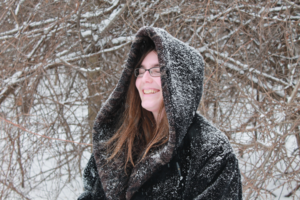 Ada Hoffmann is the author of
Ada Hoffmann is the author of 
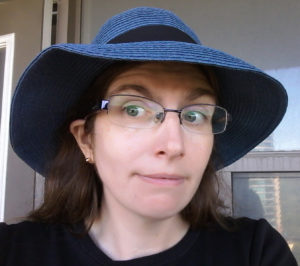 Kari Maaren is is a writer, cartoonist, musician, and university English instructor who lives in Toronto, Canada. She has just published her first novel,
Kari Maaren is is a writer, cartoonist, musician, and university English instructor who lives in Toronto, Canada. She has just published her first novel, 

